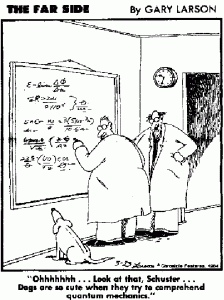I just received this in the mail. I asked the author, Dr David Andersen for permission to post it here, and he generously allowed this. It is a rejoinder to comments I made about the relationship between science and Buddhism in my 2006 book Zen Master Who: A Guide to the People and Stories of Zen. I thought he fairly summarized my position and offered a critique of it. My only caveat is I’m pretty sure I didn’t juxtapose secular and orthodox, but rather liberal and traditional, secular being a subset of liberal. And, that I thought the view I expressed was common among Buddhists of all stripes. That very small quibble aside, I think he makes a very compelling point…
Dear Roshi Ford:
I am writing to compliment you on your book, Zen Master Who, and to make a small comment/criticism of your discussion of Buddhism and science. First of all, I very much enjoyed the book; your frank discussion of Zen in America with its strengths and areas of concern is a real contribution to the dharma. You provided a great deal of information about specific lineages and specific teachers in a very accessible and entertaining way. I especially liked your recognition of how Zen Masters can be, at times, effective teachers while simultaneously struggling with issues of alcoholism and episodes of student abuse. Your discussion and the increased willingness of sanghas to directly address these issues (so that the abuse is not enabled) is a very good thing for everyone concerned
However, in my opinion your criticism of the integration of Buddhism and science was not well made.
As I understand your argument, the integration of Buddhism and science, embraced by many liberal or secular Buddhists, is inherently flawed due to the issue of falsifiability. As a PhD psychologist, I am aware of Karl Popper’s contribution to the philosophy of science and that he and you are correct in saying that a good theory in science is one that generates hypotheses that can be shown to be false. But then you make a point that does not make sense; you suggest that Buddhists seem to ignore the data generated by those sincere Buddhists who do not attain liberation.
Since there are undoubtedly many of these “failures” there is ample evidence in each sangha that would falsify the theories that underlie Buddhist practice. Moreover, you also note that when faced with this disconfirming evidence, Buddhists often rely on circular arguments, appeals to authority, and even justifications that seem to blame the practitioner for not being good enough.
I hope I have understood your argument correctly.
As you know, observed successes and failures comprise anecdotal data and anecdotal data is great for generating hypotheses but very bad for confirming them (I think Paul Meehl made this point many years ago). Researchers like Jon Kabit–Zinn, Daniel Siegel, Richard Davidson, and many others have used the scientific method very effectively to show support for Buddhist practice. To be more specific, just as in psychotherapy outcome research, the method of providing support for a hypothesis comes from many sources including randomized clinical trials, trials with wait listed control groups (randomly assigned), and less effectively, from correlational data. Usually, there is a group of subjects who receive the treatment (in this case some form of Buddhist practice), mean scores are taken on pre and post tests on one or more dependent variables, and then this data is compared to the control group. When you use mean scores, individual scores are, of course, taken into account but they usually do not, by themselves, confirm or disconfirm the hypothesis.
I have been sitting in the Buddhist tradition for over 40 years and I have identified myself as a Zen Buddhist since 1980. While I do not consider myself a secular Buddhist (I have had too many experiences that are not secular), I enjoy reading about the research on the effects of meditation on mental health. Indeed, studying this literature has helped me in my professional work as a clinical psychologist and a school psychologist; I have learned a great deal about how the brain works, about the cultivation of executive functioning skills, and how to help in a very secular way, kids with issues with emotional dysregulation.
In short, I love it when Buddhist ideas are systematically tested and I agree with the Dalai Lama (I am sure he would be thrilled to hear it) that if science shows that some part of Buddhist philosophy to be untenable, we should be prepared to drop that idea or constellation of ideas from our beliefs. I also agree with His Holiness that compassion is compassion and if it takes the scientific method to convince people of its usefulness and importance, so be it.
Again thank for your wonderful book. It is one that I read over and over as I wait for clients to come to my office.
Best wishes
David T Andersen PhD













